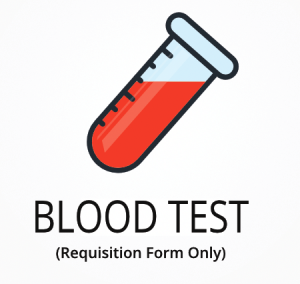Ordering the Adiponectin Test
Understanding your body’s ability to process sugar and store fat is crucial for maintaining a balanced lifestyle. The Adiponectin test provides insights into your adiponectin levels, which are linked to insulin resistance and diabetes. Interestingly, adiponectin levels can also influence inflammation, making this test a valuable tool for those monitoring chronic conditions.
Here are some specific benefits of the Adiponectin test:
- Helps assess risk for insulin resistance and diabetes.
- Monitors effectiveness of lifestyle changes or treatments.
- Provides data for managing weight-related issues.
- Assists in evaluating metabolic health.
- Offers insights into inflammation levels.
Who Should Consider This Lab Test
Individuals who are managing their weight or have a family history of diabetes may find the Adiponectin test particularly beneficial. For example, someone who has been experiencing unexplained weight gain despite a healthy diet and exercise routine might consider this test to explore underlying metabolic issues.
Other scenarios where the Adiponectin test may be useful include:
- Individuals with a family history of metabolic disorders.
- People experiencing difficulty losing weight.
- Those with a history of gestational diabetes.
- Individuals with polycystic ovary syndrome (PCOS).
- People with chronic inflammation conditions.
Consider ordering the test if any of these situations apply to you.
Preparing for the Lab Test
No fasting is required for the Adiponectin test. If you are taking any medications or supplements, it’s important to follow any specific instructions provided by your healthcare provider.
Labs Included When Ordering Your Adiponectin Test
| Test Name | Reference Ranges | Significance | Low and High Levels of Adiponectin |
|---|---|---|---|
| Adiponectin | 4.0 – 26.0 | Adiponectin is a protein hormone involved in regulating glucose levels and fatty acid breakdown. It plays a significant role in metabolic processes and is linked to insulin sensitivity. | High levels mean increased insulin sensitivity and lower risk of diabetes.
Low levels mean higher risk of insulin resistance and metabolic syndrome. |
Reference ranges can vary. For the most accurate and up-to-date reference ranges for this lab test, visit Quest Diagnostics.
Adiponectin FAQ
Is there Adiponectin testing near me?
You can locate nearby draw locations using our patient service center locator, which also offers mobile phlebotomy options.
What is the cost of the test?
The cost of the Adiponectin test is available at the top of the page. Pricing includes draw fees when visiting patient service centers.
How often should I retest?
Retesting for Adiponectin levels is typically recommended every 6 to 12 months, especially if you are monitoring a condition or treatment. Regular testing helps track changes and adjust management plans as needed.
How accurate is the test?
The Adiponectin test uses a blood sample to measure protein levels, providing a reliable assessment of metabolic health. The testing process is standardized to ensure consistent results. TrueHealthLabs.com partners only with CLIA-certified labs to maintain high testing standards.
Medical Review Board
Reviewed by Jeff Donohue M.D. from Body Logic and Brady Hurst DC, CCCN. Written by True Health Lab’s team of editorial health contributors.
Disclaimer: This information is for educational purposes only and not intended as medical advice. Consult your healthcare provider for personalized guidance.
Why Customers Trust True Health Labs - What People are saying
Also rated 4.6 out of 5 based on 3452 ShopperApproved reviews- See all TrueHealthLabs.com reviews.








